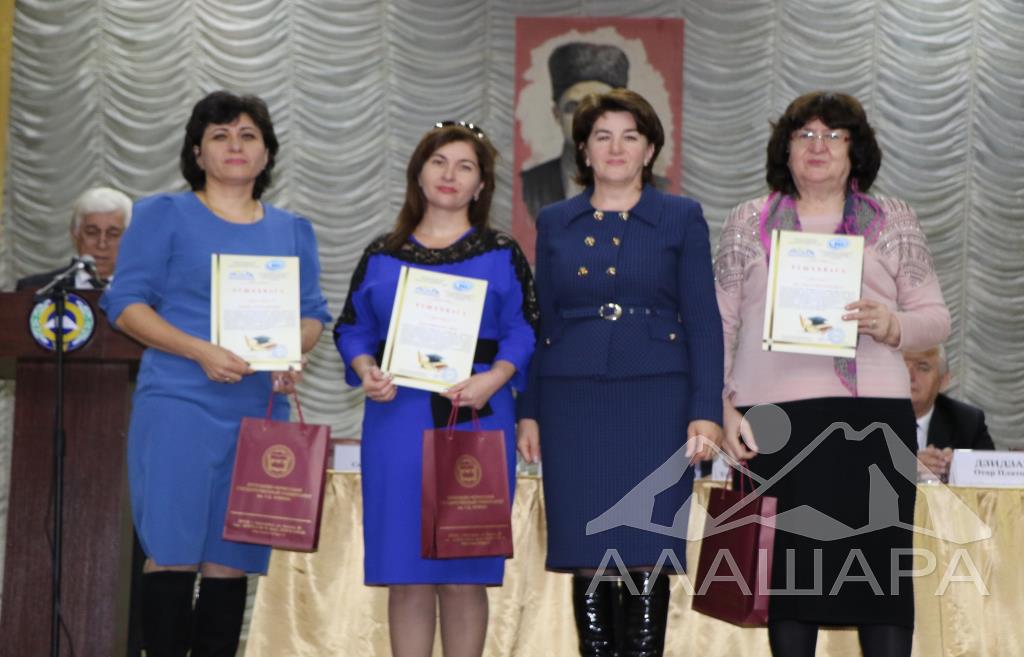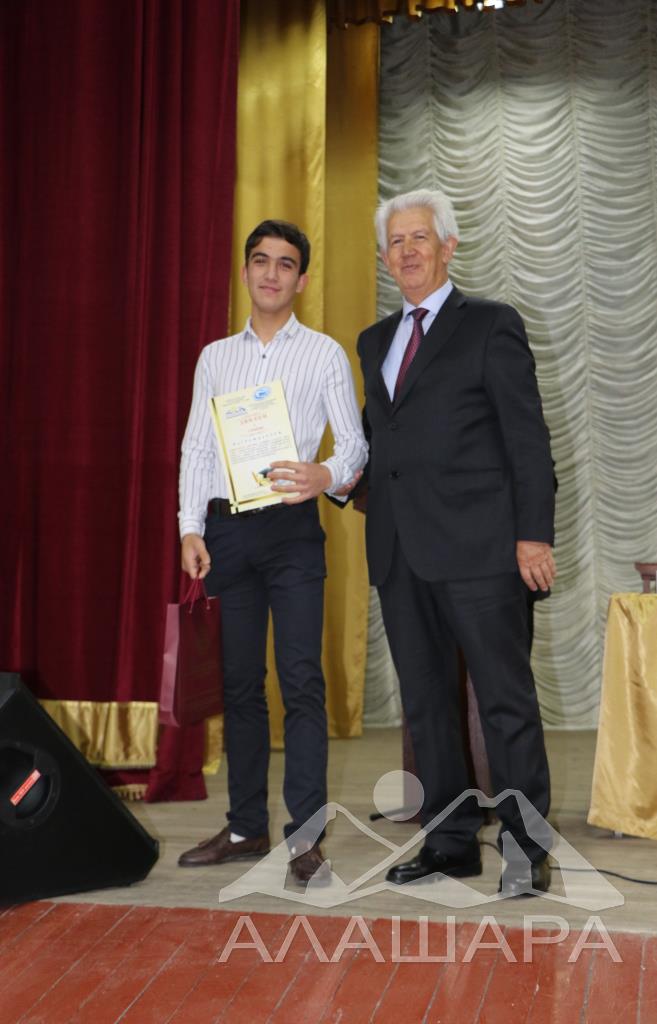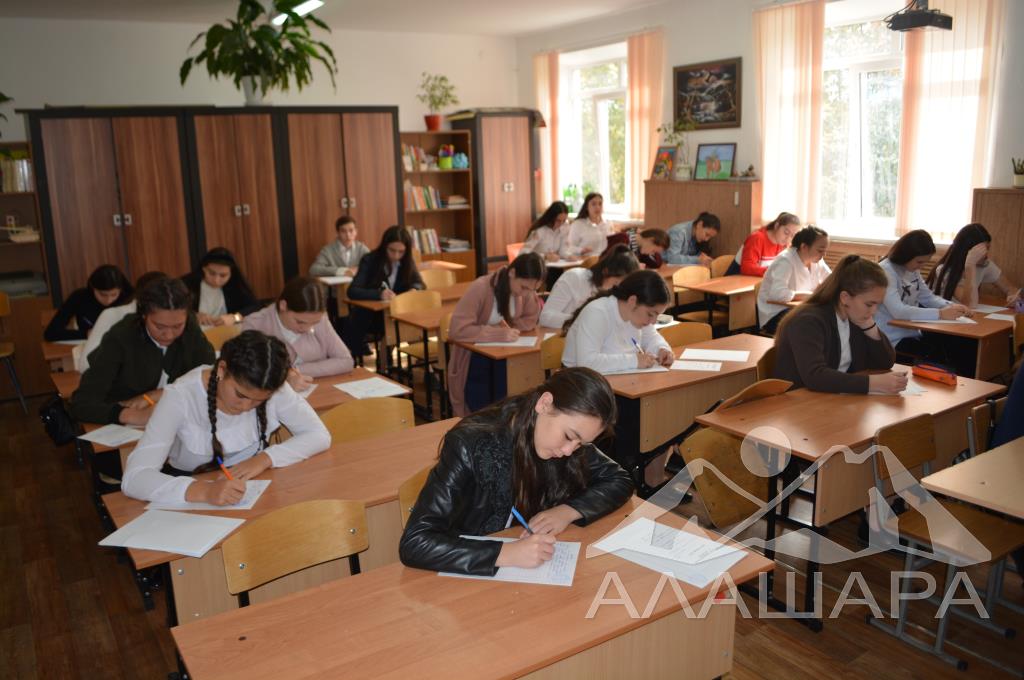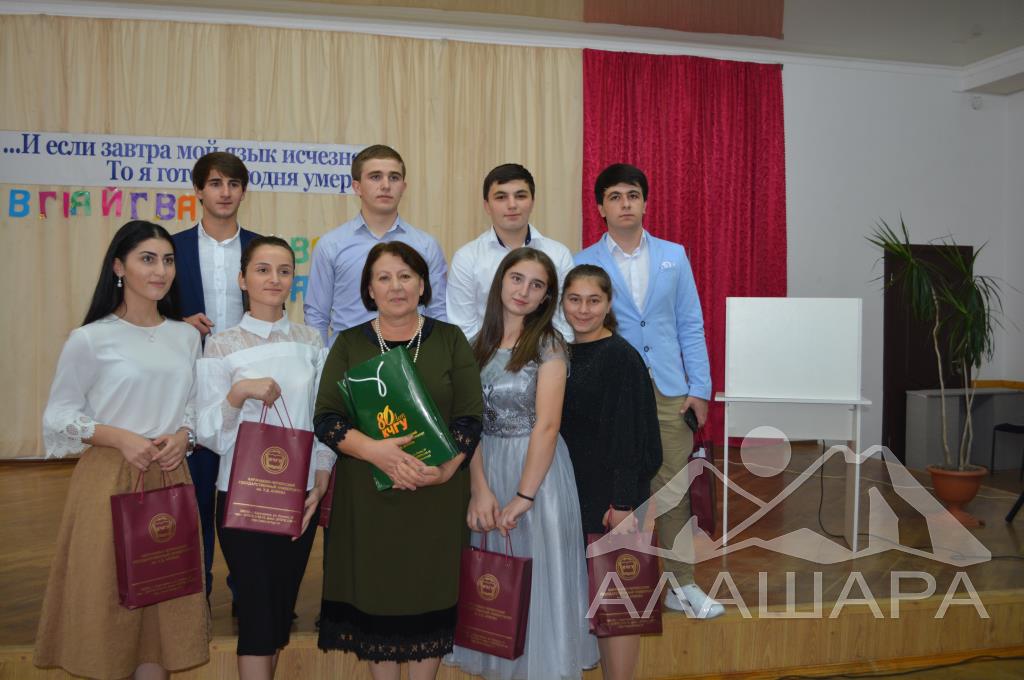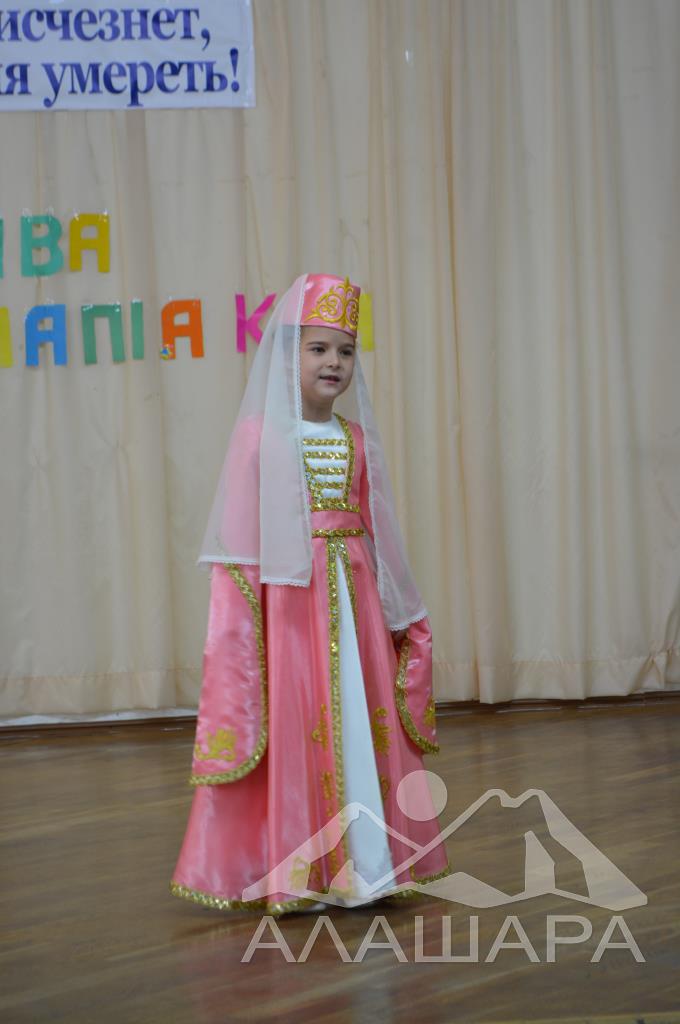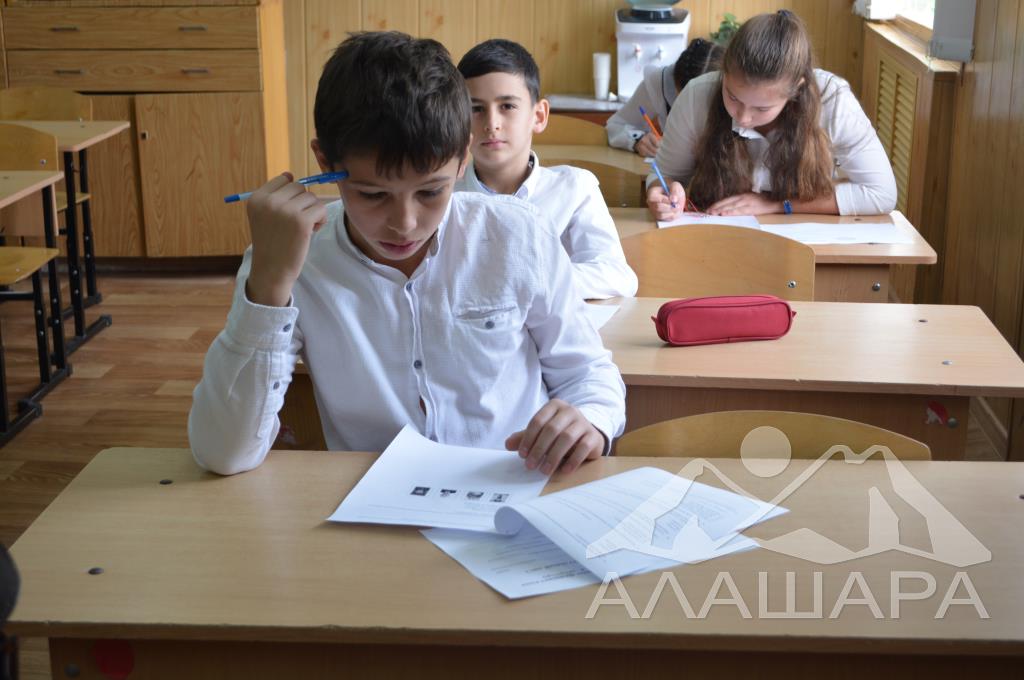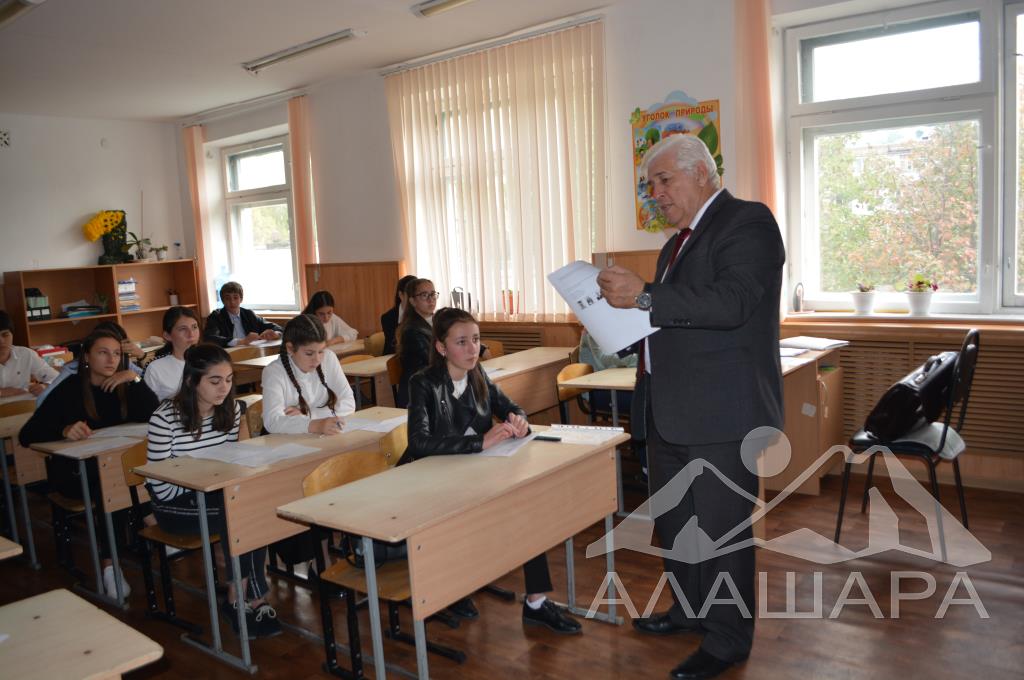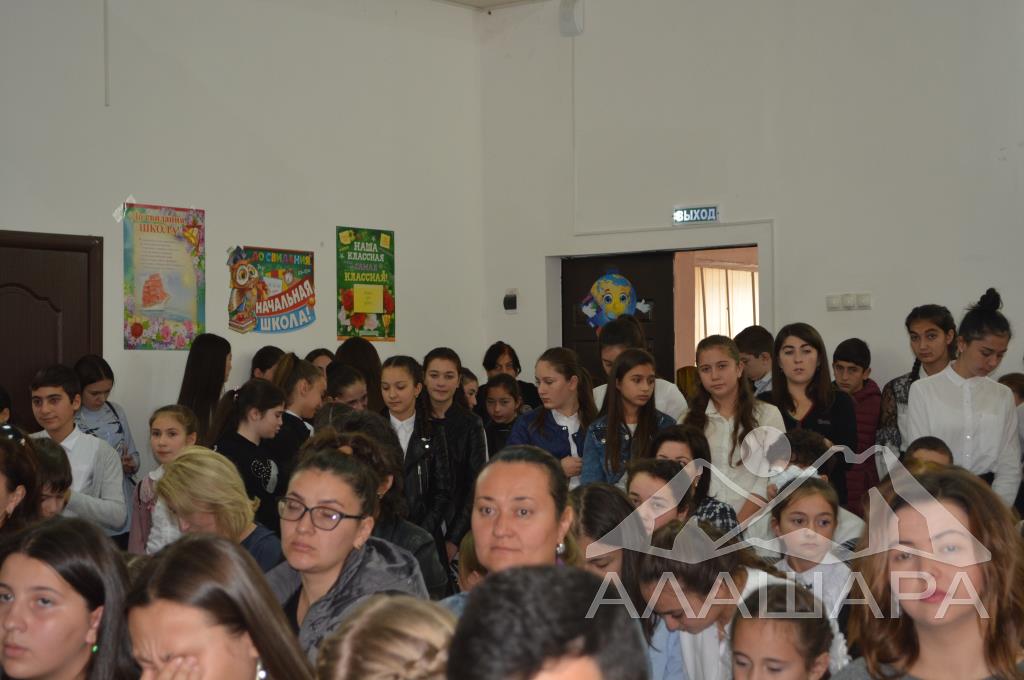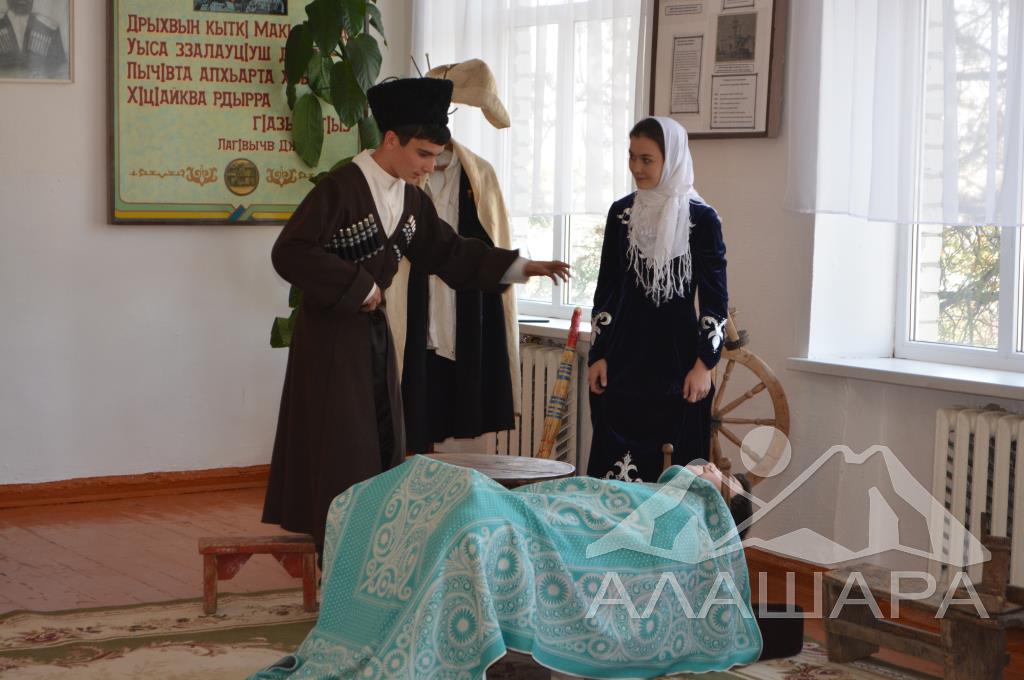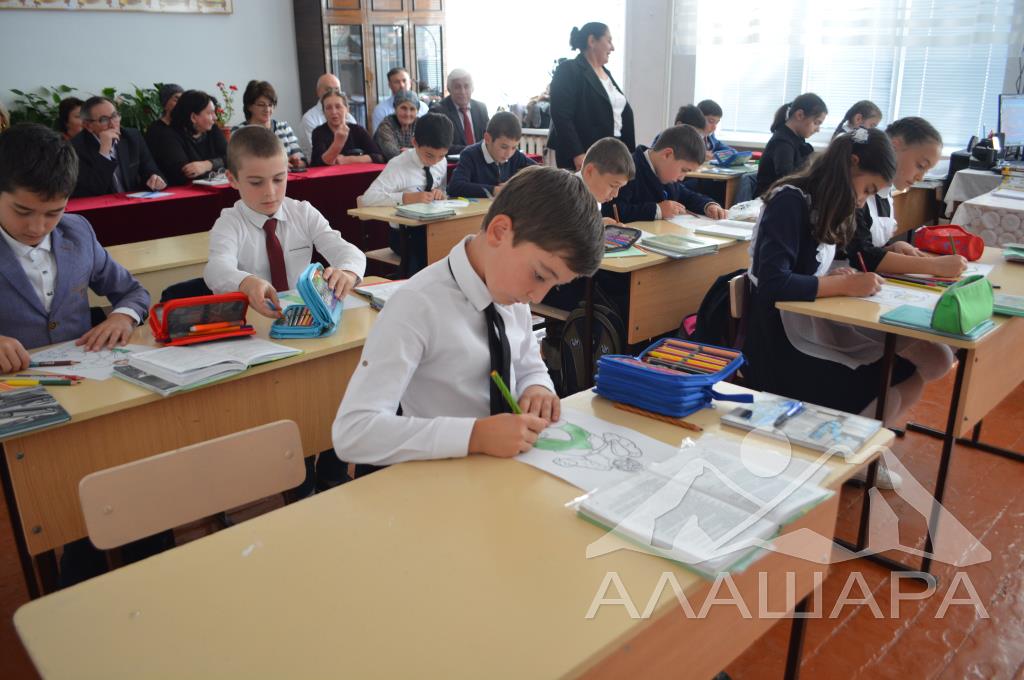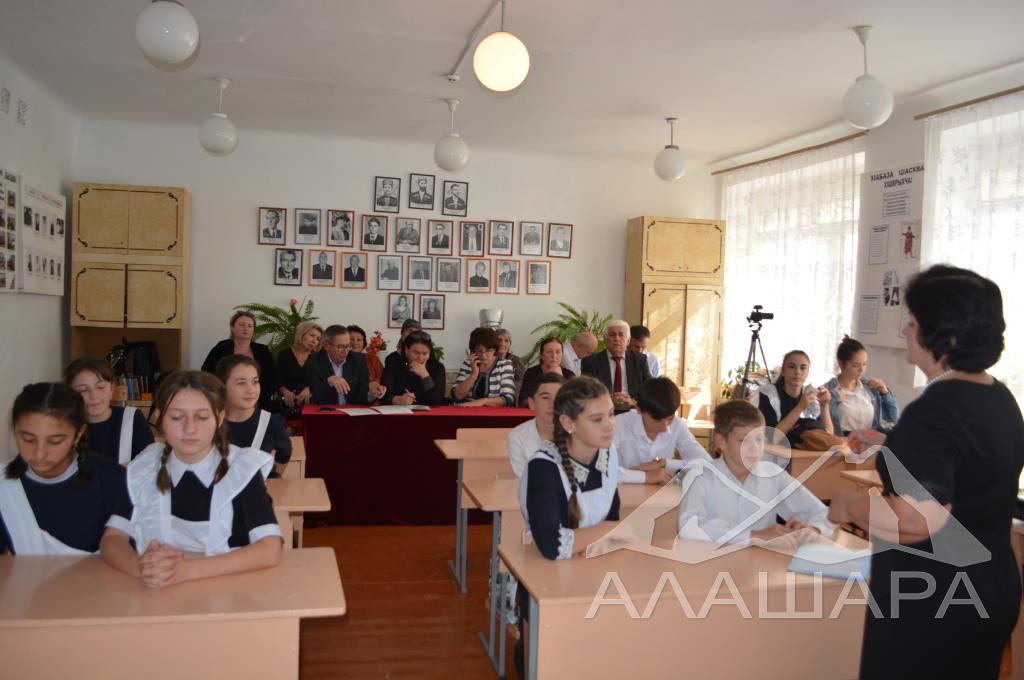Continue Tatlustan Tabulov`s work

Karachay-Cherkessia hosted the festival of Abaza language and literature, held annually by the International Association "Alashara" and Karachay-Cherkessia state university together with the Ministry of education and science of the KChR and the administration of the Abaza municipal district. This year it was timed to Tatlustan Tabulov`s 140th anniversary and is held using the funds of the Presidential grant won by the organization "Alashara".
Tatlustan Zakeryaevich Tabulov is an outstanding Abaza educator, the initiator of Abaza literature, the first collector of national folklore, the author of the first alphabets and textbooks on the Abaza language, the first professional Abaza-speaking writer.
His role in the formation of Circassian writing and literature should be noted. In 1924, he developed the Circassian alphabet in Arabic script, which was used for four years in publishing and school practice. In the period from 1925 to 1932 Tabulov published in the Circassian language 13 alphabets, working books after the primer, books for reading, methodical manuals, and in 1929-a collection of poems, dramatizations and dramatic works "Zuli".
In 1932, after approval he created the Abaza alphabet to Latin script, Tatlastan Zakeryaevich focused on work related to the study and teaching of Abaza language, a collection of national folklore, the creation of literary works in Abaza language. Even before the war, he independently and co-authored with others produced 19 alphabets, textbooks on Abaza grammar, anthologies and books for reading after the primer. In the post-war years he published two scientific works, prepared manuscripts of two more, translated and published Nikolai Chukovsky's novel "The house on the river", participated in the preparation and release of 12 programs, collections of exercises, textbooks on the Abaza language, anthologies on native literature, including his own works on the basis of folklore. In 1947 he published the first collection of Abaza fairy tales, and in 1955-the second in collaboration with the famous Abkhazian scientist Konstantin Shakril.
The annual festival of Abaza language and literature traditionally ends with a scientific and practical conference called "Tabulov`s readings" in memory of the national teacher. The current festival has expanded its scope, it was attended by a large group of scientists, students and schoolchildren from Abkhazia. The program of the festival was more substantial, which included master classes of experienced teachers of Abaza language and literature.
On October 24, two open lessons in the native language and literature were held in Elburgan secondary school. Professor Sergey Pazov, head of the department of Kabardino-Circassian and Abaza language and literature of the Karachay-Cherkessian republican institute of advanced training of educational workers Bilal Khasarokov, head of the Abaza department of the Karachay-Cherkessian institute of humanitarian studies Aishat Dzyba, head of the department of education and culture of the administration of the Abaza municipal district Zemfira Murtazova, teachers of the Abaza language and literature of schools of the Abaza district and employees of ANO "Alashara" watched their progress.
The lesson of Abaza language in the 9th grade was conducted by the teacher Aminat Shkhaeva. At the beginning, she checked how firmly the children had absorbed the previous topic-vaguely personal sentences. Some of the students received test tasks, and while they were doing them, the rest were sorting out the proposals from the given exercise at home. The presence of many guests seemed to confuse the students: they did not very boldly stretch out their hands and answered in a low voice. But the answers themselves were correct, and Aminat Rashidovna was quite satisfied with them.
Then there was lexical work: children – already much bolder-explained how they understand certain phrases taken from national folklore, translated some words into Russian. When they successfully coped with this task, the teacher moved on to explain a new topic-complex sentences. It turned out that the class studies currently the same topic at Russian language, which somewhat simplified the task of the teacher and facilitated the perception of the topic by students. And the task to write a short essay on the theme "Golden autumn" with the use of complex sentences didn`t make any difficulties for ninth graders. In any case, the two students who read the texts they composed showed a complete understanding of what complex sentences are and how to apply them in oral and written speech.
There was also a slight deviation from the main topic of the lesson. The teacher checked how well the children know Abaza account. The numbers she gave as assignments indicated years marked by significant events for Abazin. It turned out that the students are familiar with these dates and events.
Therefore, Aminat Rashidovna could only praise them, mark the most active at the lesson and give everyone a task for the next lesson and for all the autumn holidays.
Lesson of native literature was conducted by the teacher of Inzhich-Chukun school Fatima Sanaeva with the fifth form. The program of the fifth class provides acquaintance of children with oral folk art of Abaza peope. Judging by the way the students guessed the heroes of fairy tales from the pictures shown on the screen, they are already familiar with such folklore works as "Wealth and intelligence", "How the old man's daughter defeated the Prince", "Beauty and three friends", "The old man and the ant". And, more importantly, understand what these tales teach.
The next fairy tale that fifth-graders have to go through the program was "Aynizh`s son" (aynizh-a fairy-tale character: a giant). Before introducing the children the new work, the teacher explained them the meaning of some outdated words that occur in the text and with which they had not previously encountered. After reading a fragment of the fairy tale, Fatima Mukhadinovna checked how the class understands what it is about, and made sure that the children caught not only the narrative itself, but also the educational significance of individual episodes: they condemned the hero for not listening to his mother, argued and even fought with his father. Then students themselves on-waiting lists have read passages stories, showing good skills of reading unfamiliar Abaza text, and in completing lessons have drawn art characters such, how they themselves imagined.
After receiving praise from their teachers and assignment for the upcoming holidays, the children went to recess.
And guests waited one more-extracurricular-employment. Students of the 9th form under the guidance of teachers Aishat Koicheva and Madina Meremkulova prepared a theatrical performance on the theme of mountain customs and showed their own production of Tatlustan Tabulov's play "Zarylya". The game of amateur actors caused a storm of applause from the audience.
Commenting on the past lessons, Sergey Pazov noted that they were held with good activity of students, children were not bored, they listened to the teachers with interest and answered their questions.
– The most important thing: the children are wonderful and have a good command of the Abaza language. When there are such pupils, there is with whom to work, - he summed up.
Open lessons in Elburgan marked the beginning of the festival of Abaza language and literature 2019. The next day, October 25, it was continued by the competitive part of the program. It was held in Cherkessk, in gymnasium no. 16 and consisted of competitions of readers, essays and Olympiad in Abaza language and literature, in which about 200 schoolchildren and first-year students of Karachay-Cherkess pedagogical College took part. All of them were welcomed by the project Manager-Pro-rector of KCHSU Professor Sergey Pazov, Deputy Minister of education of KChR Fatima Bekizheva, head of the Department of education and culture of the administration of Abaza municipal district Zemfira Murtazova, senior lecturer of Abkhazian state University Akhra Ankvab, Director of Gudauta secondary school no. 2 Lyudmila Ristova.
Akhra Ankvab and Lyudmila Ristova brought to the competition four junior students of the Abkhazian state University and four high school students of Gudauta secondary school no. 2, whose performance became the decoration of the competition of readers. They so expressively and artistically read poems and sang songs in Abaza and Abkhazian languages that some doubted: are they not artists of the theater?
However, students of schools of Karachay-Cherkessia demonstrated a very expressive reading. And the jury had to break a lot of heads to distribute the prizes.
The names of the winners and prize-winners of all competitions were announced on November 1 during the plenary session of the scientific and practical conference "Tabulov`s readings". All winners were awarded diplomas and gifts, and the winners in the younger age groups-also cash prizes. The winners among high school students are waiting for a ticket to a linguistic camp on the Black sea coast of Abkhazia in July 2020.
– While such a prize is set only for high school students, because they already have passports, and they can independently travel abroad, - said Sergey Pazov.
In the essay competition in the first age group (grades 5-8), the work of Elina Shkhaeva from Malo-Abaza high school was recognized as the best. In second place – pupil of school №3 named after R. N. Klychev from village of Krasny Vostok Amiran Kokov, the third – Dianna Blenaova of Inzhich-Chukun.
High school winners were from two of the author's best works – Milana Hartsizova (Elburgan) and Madina Pshunova (Krasny Vostok). Second place also awarded two - Aina Ksalova (Elburgan) and Alimran Khachukov (gymnasium № 17 of the city of Cherkessk). Lilia Ashba from Staro-Kuvinsk won the third prize.
Special diplomas for active participation in the festival and the original presentation of the theme were awarded to the authors of three more works-Lilia Darmilova (Novo-Kuvinsk), Amina Adjibekova (Krasny Vostok) and Svetlana Kablakhova (Psyzh, school No. 2).
Aliya Adzhieva (Inzhich-Chukun), Milana Kablakhova (Krasny Vostok) and Muhammad Kamov (Elburgan) coped best with the tasks of the Olympiad in Abaza language and literature in the first age group (grades 5-7).
In the second age group (8-9 classes) have proved to be excellent representatives of educational institutions of the city of Cherkessk Diana Hutova (Center of education № 11), Aliikhan Khutov (school № 17) and Milana Malkhozova (gymnasium no. 5) and Salima Kharatokova from Kara-Pago, sharing 3rd place with Milana.
Another student of the city school Amina Klycheva (gymnasium no. 9) took third place among high school students. The first prize here was won by a student of Karachay-Cherkess pedagogical college Radima Aysanova, the second-11th grader of the center of education named after V. G. Ardzinba from aul Kara-Pago Jamila Kurachinova.
Primary school students also participated in the recitation competition. According to the jury, among younger students the best of all the poems read Arianna Tlyauzheva from Kubina. In the second place the pupil of school № 15 of Cherkessk Arsen Daguzhiev, the third – Darina Utegusheva of Psyzh gymnasium № 1.
Among pupils of 5-8 classes the greatest impression on members of jury was made by Saida Sheremetova (Krasny Vostok), Amal Apsov (Psyzh, gymnasium no. 1) and Liana Lapugova (Staro-Kuvinsk).
In the senior age group, the judges could not choose between Mukhtar Koychev from Elburgan and Alina Teberdukova from the Krasny Vostok, awarding both the first prize. The second prize was awarded to Zalina Kakhunova (pedcollege), the third-Alim Chikov (Psyzh, gymnasium no. 1).
Two more participants of the competition of readers – Rizuan Shkhagoshev (Psyzh school no. 2) and Amina Dzyba (Staro-Kuvinsk) were awarded diplomas of the Organizing committee of the festival.
The guests from Abkhazia also received diplomas, who impressed the audience with the expressiveness and artistry demonstrated during the reading of poems by Abaza and Abkhazian poets: students of school no. 2 of Gudauta Inar Gerzmava, Denis Kulanba, Elif Otyrba, Aminat Tarkil and students of the Abkhazian state university Diana Arahamiya, Sofiya Dgebuladze, Alkhas Psardiya and Said Sangulia, who sang songs.
The Organizing committee also noted the teachers who prepared the winners and prize-winners of the competitions and assisted in the festival.
The conference itself was attended by scientists, teachers, specialists in Abaza language and literature, as well as a large group of Circassian language teachers from Khabez district and a representative delegation of researchers from Abkhazia. It was attended by public figures-Chairman of the public movement "Adyge Khase" Ali Aslanov, an activist of the Association of Abaza public organizations "Apsadgyl".
The plenary session was held in the Assembly hall of the administration of Abaza district. It was opened and conducted by the Vice-rector of Karachay-Cherkess state University professor Sergey Pazov. Head of administration of Abaza municipal district Muhajir Nirov, Deputy Minister of education and science of KChR Fatima Bekizheva, rector of KChSU Tausoltan Uzdenov addressed the participants of the conference with welcoming words. They noted the practical importance of the conference, which opens up opportunities for the exchange of experience, the development of scientific and pedagogical cooperation. Tausultan Aubakirovich also introduced those present literary, journalistic and scientific-methodical journals in the languages of the KChR, what began publishing at the university. Scientists and specialists received as a gift the first issues of the magazines "Abazashta Adzykhkva" ("Springs of Abazashta") in Abaza language and "Kheku" in Circassian language just received from the printing house.
Vice-President of ANO "Alashara" Ramazan Mkhtse read the welcome address of the President of the organization Moussa Ekzekov. Having told briefly about the role of Tatlustan Tabulov in the creation of writing and the formation of literature in the Abaza and Circassian languages, he dwelt on the tasks facing the scientific and pedagogical community.
– It is very important that we do not just remember Tatlustan Tabulov and pay homage to him, but continue the work he started and, like him, love our language and culture, passing this priceless wealth from generation to generation. And it is you-specialists in the Abaza language, teachers, scientists, literary intelligentsia-can and should play a decisive role in this matter. In you we see the main creative force that will ensure the development of the language, which will necessarily affect the preservation of customs and traditions. I wish you fruitful work and am convinced that your research, your experience will be actively used in everyday scientific and pedagogical practice, – said Ramazan Mkhtse.
At the plenary session were heard reports of doctor of Philology Otar Dzidzaria, who told about the life and work of the founders of Abkhazian and Abaza literature in science Dmitry Gulia and Tatlustan Tabulov; doctor of Philology Maryat Kharatokova, who analyzed proverbs about reverence in the Abaza language; chief specialist of the Department of education of the city hall of Cherkessk Hadzhat Agirbova, who presented interesting information about the state and quality of the study of native languages in educational institutions of the republican capital; candidate of historical sciences Aminat Kurmanseitova, who told about the existence of printed books of Abaza people before the October revolution. The last report sparked a small debate, sparked by different interpretations of some concepts.
After the break, the conference participants moved to the Elburgan school, where, divided into three sections, they discussed the current state and problems of studying Abaza and Kabardino-Circassian languages, literatures and folklore. In total, more than 50 reports were planned at the conference. Some of them were provided in writing and will be included in the conference proceedings as well as the speeches made.


